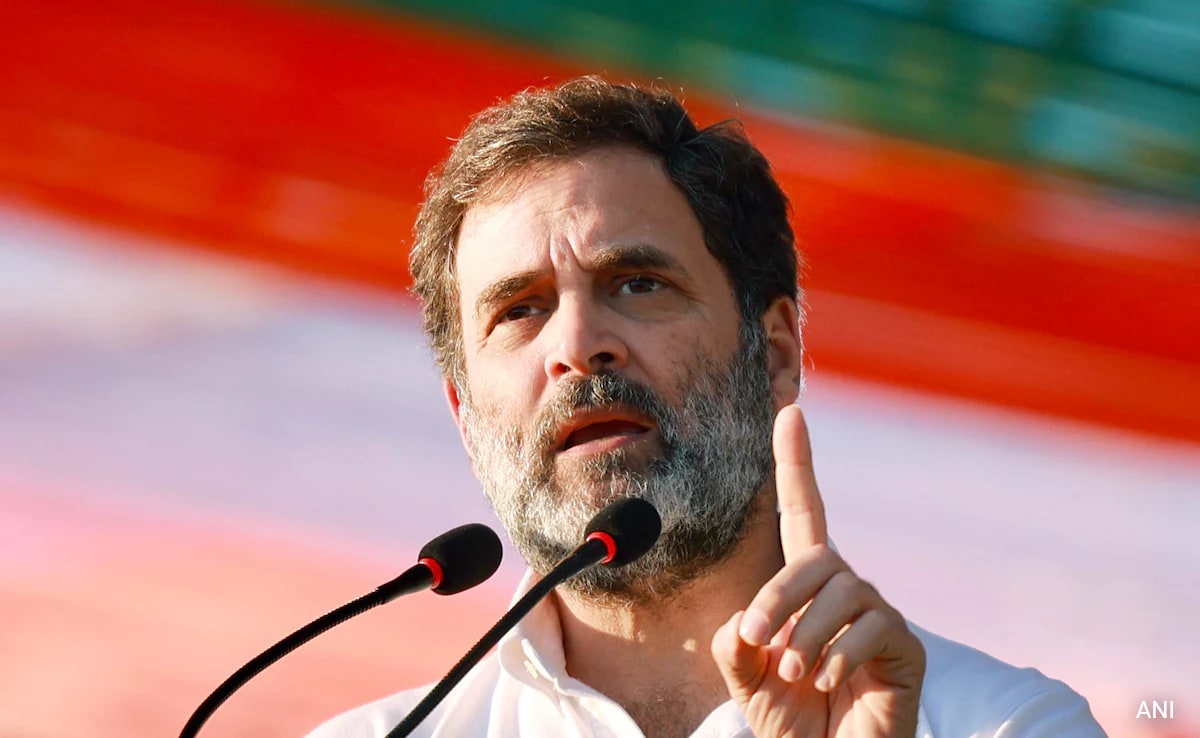
Advocate Ashok Pandey challenged the restoration of Rahul Gandhi’s Lok Sabha membership (File)
The Supreme Court on Friday imposed a cost of Rs one lakh on a Lucknow-based advocate who challenged the restoration of Congress Leader Rahul Gandhi’s Lok Sabha membership.
A bench of Justices BR Gavai and Sandeep Mehta found the petition to be frivolous and a waste of judicial time.
Advocate Ashok Pandey challenged the restoration of Rahul Gandhi’s Lok Sabha membership, who was disqualified after court sentenced him to two years’ imprisonment in the criminal defamation case over ‘Modi surname’ remark.
Rahul Gandhi was sentenced to two years’ imprisonment, which disqualified him as an MP from Kerala’s Wayanad under the rigours of the Representation of People Act. The Supreme Court later stayed his convicted and thereafter, his Lok Sabha membership was restored.
Ashok Pandey had moved the top court, seeking quashing of the notification of Lok Sabha, by which Rahul Gandhi’s membership was restored.
Last year, the top court dismissed Ashok Pandey’s plea and imposed a fine of Rs one lakh on him for challenging the restoration of Lok Sabha membership of the Nationalist Congress Party Leader Mohammed Faizal.
Challenging Rahul Gandhi’s restoration, Ashok Pandey had said that once he lost his Lok Sabha membership, after being convicted in a criminal defamation case and was awarded two years of imprisonment, the Speaker of the Lok Sabha was not right in restoring back his lost membership.
The plea submitted that once a member of Parliament or of a state legislature loses his office by operation of law in Article 102, 191 of the Constitution read with section 8 (3) of the Representation of People Act 1951, he will continue to be disqualified till he is acquitted from the charges levelled against him by some higher court.
“Rahul Gandhi lost his membership of Lok Sabha when he was convicted for defamation and was awarded a two-year sentence and as such, the Speaker was not right is restoring back his membership,” the plea had stated.
The Gujarat High Court on July 7, 2023 affirmed the decision of a Gujarat Sessions court, which had refused to put on hold a magisterial court order on March 23 convicting Rahul Gandhi and handing out the maximum punishment provided for criminal defamation under the Indian Penal Code.
Rejecting Rahul Gandhi’s plea, the High Court had said that he has been seeking a stay on his conviction on “absolutely non-existent grounds” and a stay on conviction is not a rule but an exception.
In March 2023, the magisterial court had convicted Rahul Gandhi for his remarks ahead of the 2019 national polls about the ‘Modi’ surname.
After magisterial court convicted Rahul Gandhi, he approached the Sessions court, which rejected his plea for a stay on his conviction on April 20. Thereafter, he approached the High court. He later approached the Supreme court for relief.
Congress leader was sentenced to two years in jail on March 23 under sections 499 and 500 (defamation) of the Indian Penal Code (IPC) in a case filed by Purnesh Modi.
At a rally in Karnataka’s Kolar in April 2019, Rahul Gandhi, in a dig at Prime Minister Narendra Modi, said, “How come all the thieves have Modi as the common surname?”.
(Except for the headline, this story has not been edited by NDTV staff and is published from a syndicated feed.)




